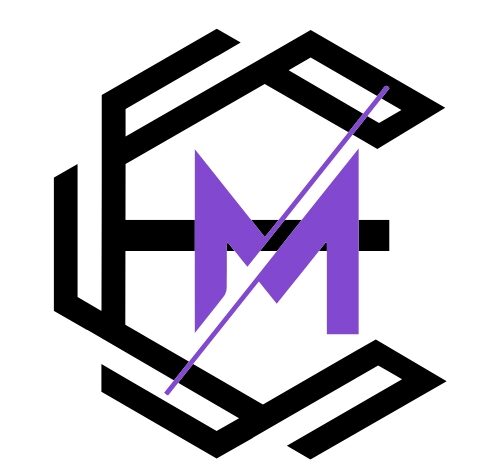In a bold and controversial move that has sparked global debate, a leading tech company has announced a complete halt to human hiring. The organization, which remains unnamed but operates at the forefront of artificial intelligence (AI) innovation, believes its advanced AI systems can now manage a wide array of office tasks with unmatched efficiency. The announcement by the company’s CEO has drawn mixed reactions from industry experts, employees, and the public.
AI Taking Over the Office Space
During a recent press conference, the CEO explained the rationale behind the decision. According to the leader, the company’s AI infrastructure has reached a level of sophistication where it can replace human employees for tasks such as data analysis, customer service, content creation, and even strategic planning.
“AI is no longer just a tool; it is now the backbone of our operations,” the CEO stated. “We have tested its capabilities across various roles, and the results have been extraordinary. It works faster, produces fewer errors, and learns continuously, making it an invaluable asset.”
The company claims this transition will save significant costs while increasing productivity. The organization envisions an office environment that operates seamlessly around the clock by removing human limitations such as fatigue, personal biases, and the need for breaks.
The Benefits of AI Integration
The company highlighted several benefits of replacing human workers with AI:
- Cost Efficiency: AI systems require an upfront investment but eliminate recurring costs such as salaries, benefits, and workplace facilities.
- Increased Productivity: Unlike humans, AI doesn’t require downtime and can operate continuously at peak efficiency.
- Enhanced Accuracy: AI reduces human error, particularly in data-heavy tasks such as financial reporting or software testing.
- Scalability: AI systems can be scaled instantly to meet growing demands without the challenges of recruiting and training new employees.
These advantages, according to the company, outweigh the challenges posed by the transition.
The Ethical Dilemma
While the tech giant has touted the advantages of its AI workforce, the announcement has raised ethical concerns about the future of human employment. Critics argue that this decision could set a dangerous precedent, leading to mass unemployment and economic instability.
Automation is not a new concept in the workplace. Machines have been replacing humans in manufacturing and logistics for decades. However, the integration of AI into white-collar jobs signals a shift that could disrupt professions traditionally considered immune to automation.
“Jobs like writing, graphic design, and customer service—roles that require creativity, empathy, and nuanced decision-making—are now under threat,” said an industry analyst. “The question is, can AI truly replicate human qualities, or will companies risk sacrificing innovation for efficiency?”
Employees React
The company’s current workforce, many of whom have been instrumental in developing the AI systems now replacing them, has expressed mixed feelings about the move. While some employees applaud the organization for being a trailblazer in AI adoption, others are concerned about their future job prospects.
“On the one hand, it’s fascinating to see what we’ve built,” said a senior software engineer. “But on the other hand, there’s a looming uncertainty about how this will affect our livelihoods and those of others in similar industries.”
Employees who are not immediately affected by the changes worry that this trend could ripple across other organizations, leading to widespread adoption of similar practices.
Industry Experts Weigh In
Experts in the field of AI have acknowledged the potential of advanced systems to revolutionize workplaces but caution against the rapid replacement of human employees. They argue that while AI excels in handling repetitive tasks, it still lacks the emotional intelligence and adaptability of humans.
“AI can process data and recognize patterns, but it doesn’t possess creativity or empathy, which are essential for roles like leadership, innovation, and customer relations,” one expert commented. “A balance must be struck between utilizing AI’s capabilities and preserving human-centric roles.”
Future Implications
The company’s decision underscores the growing influence of AI in shaping the future of work. As AI systems become more advanced, other organizations may feel pressured to adopt similar practices to remain competitive. This raises important questions about how industries and governments will adapt to a workforce increasingly dominated by machines.
Governments worldwide are being urged to take proactive measures to address these challenges, including:
- Developing new education and training programs to equip workers with skills relevant in an AI-driven economy.
- Implementing policies to regulate AI usage in workplaces.
- Introducing social safety nets for displaced workers.
Without such interventions, experts warn that automation could widen income inequality and lead to social unrest.
A Path Forward
Despite the controversy, the company insists its decision reflects an inevitable shift in the way businesses operate. The CEO believes the transition to an AI-driven workforce is not about eliminating human contributions but rather about optimizing operations for a technology-driven future.
“We’re not saying humans are obsolete,” the CEO clarified. “Our goal is to demonstrate what’s possible when AI is integrated thoughtfully into the workplace. It’s about evolving how we work, not abandoning human ingenuity.”
As industries grapple with the implications of such a move, the tech giant’s announcement serves as a wake-up call for organizations and individuals alike to prepare for an AI-dominated future.
Conclusion
The rise of AI in the workplace presents both opportunities and challenges. While the benefits of efficiency and cost savings are undeniable, the potential social and economic impact of replacing human employees cannot be ignored. As this tech company pioneers a controversial approach, the world watches closely to see whether this bold experiment will succeed—or serve as a cautionary tale for others.

